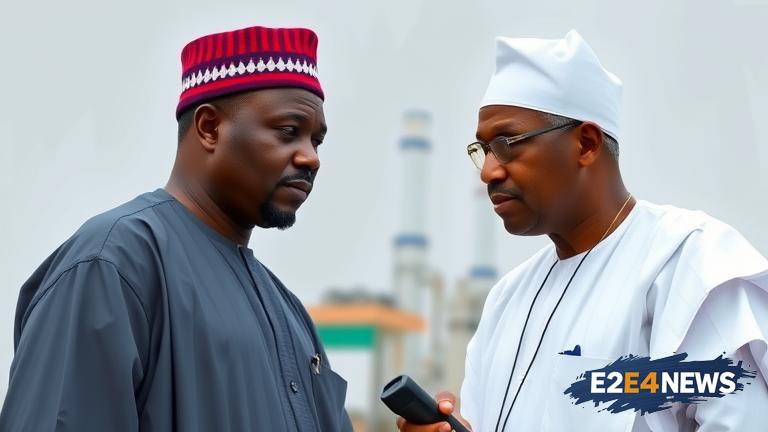The Dangote Refinery, a multi-billion dollar project, was expected to revolutionize Nigeria’s energy sector by providing a significant portion of the country’s fuel needs. However, the plan to distribute fuel from the refinery has hit a roadblock due to a disagreement between the Federal Government and marketers. The marketers are demanding a higher margin on the sale of fuel, while the government is insisting on a lower price to make fuel more affordable for Nigerians. The deadlock has stalled the distribution plan, leaving the refinery’s fuel output in limbo. The Dangote Refinery is one of the largest in Africa, with a capacity to produce 650,000 barrels of oil per day. The refinery is expected to reduce Nigeria’s reliance on imported fuel, which has been a major drain on the country’s foreign exchange reserves. However, the disagreement between the government and marketers has raised concerns about the viability of the project. The marketers are arguing that the current margin on fuel sales is too low, making it difficult for them to operate profitably. On the other hand, the government is insisting that the price of fuel must be kept low to make it affordable for Nigerians. The government has also threatened to impose sanctions on marketers who refuse to sell fuel at the approved price. The deadlock has also raised concerns about the impact on the country’s economy, as the lack of fuel distribution could lead to shortages and price hikes. The Nigerian National Petroleum Corporation (NNPC) has intervened in the dispute, calling for a meeting between the government and marketers to resolve the issue. The meeting is expected to take place soon, but it is unclear whether a resolution will be reached. The Dangote Refinery is a critical project for Nigeria’s energy sector, and the government must find a way to resolve the dispute and get the fuel distribution plan back on track. The project has the potential to create thousands of jobs and stimulate economic growth, but the deadlock is threatening to derail these benefits. The government must also consider the long-term implications of the dispute, as it could damage the country’s reputation as a viable investment destination. The Dangote Refinery is a private sector-led project, and the government must create a conducive environment for private sector investment to thrive. The dispute has also highlighted the need for a more transparent and predictable pricing regime for fuel, to avoid similar disputes in the future. The government must work with stakeholders to develop a pricing regime that takes into account the interests of all parties involved. In the meantime, Nigerians are bearing the brunt of the deadlock, as fuel shortages and price hikes become more frequent. The government must act quickly to resolve the dispute and get the fuel distribution plan back on track, to avoid further hardship for Nigerians. The Dangote Refinery is a critical project for Nigeria’s energy sector, and the government must find a way to make it work. The project has the potential to transform the country’s energy landscape, but the deadlock is threatening to derail these benefits. The government must take a proactive approach to resolving the dispute, to avoid further delays and ensure that the project is completed on schedule.
